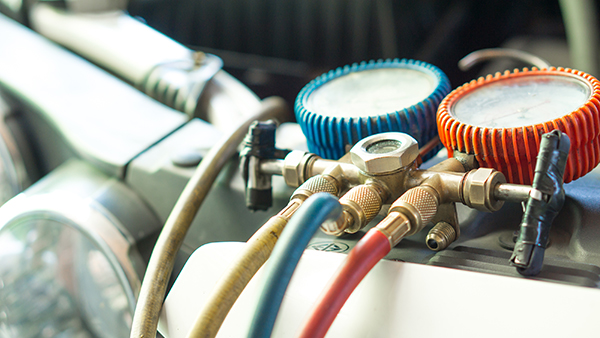Several signs can indicate a failing automotive air conditioning (AC) system
We've all been there — it's a hot day, and you desperately need your car's air conditioning to work. But alas, something is wrong. Your once trusty AC system is failing, and you're sweating in the driver's seat. But how can you tell if your AC system is on the fritz? We'll cover several signs indicating a failing automotive AC system and discuss how to diagnose and address these issues. So let's dive in!
Common signs of a failing AC system
Weak airflow - If you notice a decrease in the airflow coming from your vents, it could be a sign that your AC system is struggling. A clogged cabin air filter may cause this, a failing blower motor, or a damaged air duct. If the airflow is weaker than usual, it's time to investigate and address the issue.
Unusual noises - When your AC system starts making strange noises like clicking, rattling, or grinding, it could be a sign that something is wrong. These noises may indicate a problem with the compressor, the blower motor, or the fan. Please don't ignore these sounds, as they can lead to more significant issues down the road.
Foul smells - If you notice an unpleasant odor when you turn on your AC, it could be a sign of mold or mildew growth in the system. This can result from excess moisture in the evaporator coil or a clogged drain. Not only is this unpleasant for you and your passengers, but it can also pose health risks.
Inconsistent cooling - If your AC system cools your car inconsistently, it could be a sign of a problem. This might be due to a low refrigerant level, a malfunctioning thermostat, or a damaged compressor. Inconsistent cooling can lead to discomfort and frustration, so addressing the issue promptly is essential.
Leaking refrigerant - Refrigerant leaks can cause your AC system to lose its cooling efficiency. If you notice a pool of liquid under your car, it could be refrigerant leaking from the system. This can be caused by damaged hoses, seals, or connectors and should be fixed immediately.
Electrical issues - Flickering or unresponsive AC controls could indicate an electrical problem within the system. Wiring issues, a blown fuse, or a malfunctioning control module can all cause these problems. Identifying and fixing any electrical issues is crucial, as they can lead to further complications in your AC system.
Frozen evaporator coil - A frozen evaporator coil can prevent your AC system from cooling effectively. This can occur when there is insufficient airflow over the coil or when the refrigerant level is too low. If you notice frost or ice on your evaporator coil, it's time to address the problem.
Compressor problems - The compressor is the heart of your AC system, and if it's failing, your system won't be able to cool your car effectively. Symptoms of a failing compressor include poor cooling performance, unusual noises, and refrigerant leaks. If you suspect an AC compressor issue, it's essential to have a professional mechanic check it out.

How to diagnose a failing AC system
Visual inspection
The first step in diagnosing a failing AC system is to conduct a visual inspection. Check for any signs of damage or leaks in the hoses, seals, and connectors. Inspect the cabin air filter and ensure it's clean and functioning correctly.
AC performance test
An AC performance test can help identify your system's cooling efficiency issues. By measuring the temperature of the air coming from the vents, you can determine if your AC system is working correctly or if a problem needs to be addressed.
Pressure test
A pressure test can help identify issues with your AC system's refrigerant levels. If the pressure is too low, it could indicate a leak or a problem with the compressor. If the pressure is too high, it could point to a blockage or a malfunctioning expansion valve.
What to do when your AC system fails
DIY fixes
Some common AC problems can be fixed with a bit of DIY know-how. For example, replacing a clogged cabin air filter or repairing a loose electrical connection can often resolve minor issues. However, it's essential to recognize when a problem is beyond your expertise and requires professional attention.
Professional repairs
For more complex issues, such as ac compressor failure or refrigerant leaks, it's best to seek the help of a qualified mechanic. They will have the necessary tools and expertise to diagnose and repair your AC system effectively, ensuring it's running smoothly and keeping you cool on the road.
Wrapping Up
A failing automotive air conditioning system can cause discomfort and frustration, but recognizing the signs of failure is the first step in addressing the issue. By being aware of symptoms like weak airflow, unusual noises, and inconsistent cooling, you can take immediate action to diagnose and repair any problems. Whether you tackle the issue yourself or seek professional automotive help, maintaining a well-functioning AC system is essential for your comfort and safety on the road. Contact our experts at Original Air and we'll help you get the parts you need to stay cool year round!
